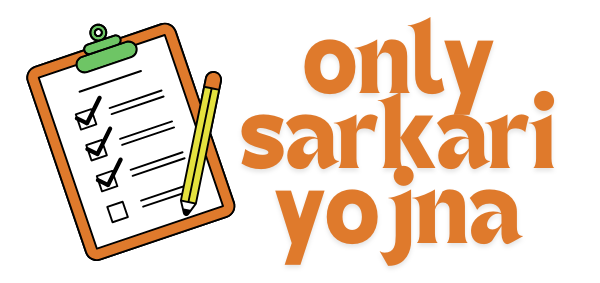In today’s rapidly evolving landscape, online courses have emerged as a widely favored method for individuals to acquire new skills and knowledge from the convenience of their homes.
This article examines the various types of online courses available, including both self-paced and instructor-led options, as well as the distinctions between free and paid courses. It emphasizes the numerous advantages of online learning, such as flexibility and a wide array of subject matter.
Furthermore, it offers guidance on how to select the appropriate course to meet individual needs and recommends several of the leading courses to initiate one’s educational journey.
Why Take Online Courses?

The popularity of online courses has surged as individuals increasingly seek flexible and accessible means to enhance their skills and knowledge through e-learning.
These educational platforms offer the advantage of self-paced learning and encompass a wide array of subjects, ranging from digital marketing to graphic design, thereby ensuring that learners can find topics that align with their interests.
The ability to access high-quality content from distinguished instructors worldwide, without the limitations of geographical constraints, represents a significant advancement in education. Platforms such as Skillshare and LinkedIn Learning further enhance the online education landscape, enabling learners to integrate knowledge acquisition with practical skill development.
As the demand for lifelong learning continues to rise, these courses serve as vital resources for professional development and personal growth.
Types of Online Courses for Beginners
When entering the field of online education, beginners have the opportunity to select from a wide variety of online courses designed to meet their specific needs, particularly focusing on introductory courses that provide a solid foundation for skill development.
These courses generally fall into two primary categories:
- Self-paced learning programs, which enable learners to study at their own convenience.
- Instructor-led formats, which offer structured learning with the assistance of subject matter experts.
Furthermore, learners can explore both free and paid options, ensuring that they can identify a course curriculum that aligns with their budgetary constraints and educational objectives.
Self-paced vs. Instructor-led
The choice between self-paced and instructor-led online courses has a significant impact on the overall learning experience, particularly for beginners. Self-paced learning offers individuals the opportunity to progress through course materials at their own speed, providing the flexibility needed to balance educational pursuits with personal and professional commitments.
In contrast, instructor-led courses deliver structured guidance from experienced educators, fostering a collaborative environment that enhances learner engagement and knowledge retention. Individuals can select a course format that aligns with their preferred learning style, thereby ensuring a productive educational journey.
Each format presents distinct advantages and disadvantages. Self-paced courses are particularly beneficial for those who thrive in an independent learning environment, as they enable learners to revisit challenging concepts as necessary and adjust their learning strategies based on their level of understanding.
Conversely, instructor-led courses typically promote collaboration through discussions and inquiries, which can be invaluable for individuals who benefit from immediate feedback and peer interaction. While self-paced options often necessitate a higher degree of self-motivation and discipline, instructor-led classes may impose a fixed schedule that accommodates some learners but may restrict others.
Ultimately, the decision between these two formats depends on an individual’s lifestyle, learning preferences, and educational goals.
Free vs. Paid
The debate between free and paid online courses represents a crucial consideration for individuals aiming to enhance their knowledge and skills through online education. Free courses often serve as a cost-effective introduction to various subjects, enabling learners to explore topics without financial commitment.
Conversely, paid courses typically offer more comprehensive content, personalized support, and certification programs that can significantly enhance a learner’s professional profile. Ultimately, the decision rests upon the individual’s goals and the value they attribute to course ratings and accreditation.
While free courses can provide a valuable entry point, they may lack the depth and guidance necessary for a thorough understanding, often leaving learners with only foundational knowledge. In contrast, investing in paid courses can yield substantial benefits, such as recognized credentials, which can considerably strengthen resumes and attract the attention of employers seeking qualified candidates.
Paid options frequently feature better-aligned course materials and industry insights, potentially leading to a higher return on investment.
Prospective learners should exercise discernment, carefully evaluating course ratings and seeking information regarding the institution’s reputation prior to making a commitment. This ensures that their educational pursuits are aligned with their professional aspirations.
Benefits of Online Learning for Beginners

Online learning offers numerous advantages for beginners, fundamentally transforming the manner in which individuals acquire new skills and knowledge.
One of the key benefits is the flexibility it provides, allowing learners to select when and where they engage with course material, thereby facilitating the management of other personal commitments.
Furthermore, the online education landscape encompasses a diverse array of subjects and skills, ranging from coding boot camps to creative writing, ensuring that learners can pursue both their interests and professional aspirations.
The incorporation of interactive learning methods and multimedia resources significantly enhances learner engagement, leading to a more effective and enjoyable educational experience.
Flexibility and Convenience
One of the most notable attributes of online learning is its inherent flexibility and convenience, rendering it an appealing option for individuals seeking to balance educational pursuits with other commitments.
In contrast to traditional classroom environments, online courses provide learners the opportunity to schedule their study sessions according to their availability, whether early in the morning or late at night. This self-paced learning model give the power tos individuals to progress at a rate that aligns with their comprehension and lifestyle, thereby facilitating the effective utilization of digital resources to enhance their educational experience.
This adaptability is particularly advantageous for those managing work, family, or other responsibilities, as it alleviates the pressures associated with fixed class times and locations.
Beginners can leverage a variety of online tools and platforms that offer interactive lessons, video tutorials, and forums for collaborative learning. By personalizing their study schedules, learners can ensure they not only grasp the material but also engage with it in a manner that aligns with their individual learning styles.
The extensive range of available resources allows students to deepen their understanding of various subjects, ultimately making the online educational experience both enriching and effective.
Wide Range of Topics and Skills
The extensive range of topics and skills offered through online courses represents a significant advantage for beginners seeking to enhance their education. From language studies and graphic design to data science and business management, learners have the opportunity to select from a wide array of subjects that align with their personal interests and professional aspirations.
This diverse selection facilitates the creation of customized learning pathways, enabling individuals to design a course curriculum that effectively addresses their specific skill development and knowledge acquisition needs.
Furthermore, this flexibility encourages learners to explore emerging fields such as cybersecurity and digital marketing, where they can acquire competencies that are highly relevant in today’s job market.
With access to a variety of resources, including video tutorials, interactive assignments, and expert-led discussions, individuals are able to adapt their studies to accommodate their schedules and preferred learning paces. This adaptability not only enhances motivation but also fosters a deeper understanding of complex concepts, ultimately facilitating the practical application of acquired knowledge in real-world scenarios.
How to Choose the Best Online Course for You
Selecting the most suitable online course can be a challenging endeavor, particularly for individuals who are new to digital learning.
To navigate this process effectively, it is essential for individuals to first identify their objectives and preferred learning styles, as these factors are critical in determining the appropriate course.
Conducting thorough research on various options and reviewing course recommendations and evaluations can yield valuable insights into the quality and relevance of available programs.
This approach ultimately assists learners in finding a solution that aligns with their aspirations.
Identifying Your Goals and Learning Style

To select the most effective online course, it is imperative to first identify one’s goals and learning style, as these factors will significantly influence the educational experience.
Individuals should begin by contemplating their objectives for online education, whether they seek skill enhancement, career advancement, or personal development. Additionally, it is important to consider preferred learning styles—such as visual aids, hands-on projects, or collaborative learning environments—as these preferences will determine the type of course curriculum that best suits their needs.
By clearly defining personal objectives and preferred learning methods, individuals can navigate the extensive range of available courses with greater confidence. This clarity not only aids in selecting programs that align with specific aspirations but also ensures an engaging and productive educational journey.
For example, an individual interested in innovation may benefit more from interactive workshops, while a visual learner might excel in courses that utilize infographics and videos.
Ultimately, understanding these elements is essential, as they have a profound impact on motivation, retention, and overall satisfaction in the pursuit of knowledge and skills.
Researching Course Options
Once the goals and learning preferences have been clearly identified, the subsequent step involves conducting thorough research on course options available across various online learning platforms to determine the most suitable fit. It is advisable to utilize course ratings, reviews, and testimonials to assess the quality and effectiveness of potential courses.
Platforms such as Udemy, Coursera, edX, and Khan Academy offer comprehensive course descriptions and user feedback, enabling learners to make informed decisions regarding their educational pursuits.
During this exploration, it is beneficial to delve deeper into user experiences by examining how others perceived the course content, the instructor’s teaching style, and the overall engagement level. High ratings and positive reviews often suggest a successful learning experience, while negative feedback may reveal potential shortcomings.
It is crucial to pay attention to specific comments concerning the applicability of the skills taught, as well as the course’s structure and pacing.
By synthesizing feedback from various platforms, individuals can more effectively assess which options align with their personal and professional aspirations, thereby enhancing the likelihood of a rewarding online learning experience.
Top Online Courses for Beginners
For individuals new to online education, investigating highly-rated online courses that have received favorable feedback from students serves as an excellent starting point.
Various learning platforms provide a diverse array of introductory courses across multiple disciplines, ranging from computer programming to financial literacy.
By taking into account course recommendations and assessments, learners can choose programs that not only align with their interests but also deliver high-quality content and effective learning pathways.
Course Recommendations and Reviews
Course recommendations and reviews are essential resources for beginners navigating the extensive landscape of online courses. These insights enable learners to assess the quality, effectiveness, and skill development potential of various programs offered across different learning platforms.
By analyzing student testimonials and expert evaluations, individuals can make informed decisions regarding which online courses align best with their educational needs and objectives.
For novices, the abundance of available options can be daunting, rendering these recommendations critical for narrowing down choices. Each review not only emphasizes the strengths of a course but also provides constructive feedback on areas requiring improvement, assisting learners in understanding what to anticipate.
Reputable learning platforms compile course lists based on rigorous quality assessments, ensuring that students have access to high-quality resources. Ultimately, engaging with peer reviews cultivates a sense of community and support, give the power toing individuals to embark on their learning journey with confidence and clarity.
Frequently Asked Questions

What are the best online courses for beginners?
The best online courses for beginners can vary depending on personal interests and goals, but some popular options include coding, digital marketing, graphic design, and language learning courses.
How do I determine which online course is best for me as a beginner?
Before enrolling in an online course, it’s important to consider your interests, learning style, and goals. Research different courses, read reviews, and take advantage of free trial periods to get a better idea of what course may be best suited for you as a beginner.
Are there any free online courses for beginners?
Yes, there are many free online courses available for beginners. Some popular platforms for free courses include Coursera, edX, and Khan Academy. Keep in mind that while these courses may be free, they may not offer certifications or personalized support.
Do I need any prior experience to take online courses for beginners?
No, most online courses for beginners are designed to be accessible for individuals with little to no prior experience in the subject. However, it’s always helpful to have a basic understanding or interest in the topic beforehand.
How can I ensure the quality of the online courses for beginners?
To ensure the quality of an online course for beginners, it’s important to research the course provider and read reviews from previous students. Additionally, look for courses that offer certifications or have reputable instructors.
Can I earn a certificate or degree from online courses for beginners?
Yes, many online courses for beginners offer certifications or even degree programs upon completion. Be sure to research and choose accredited courses if you’re looking to earn a recognized certificate or degree.




